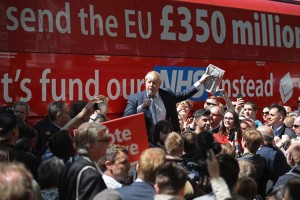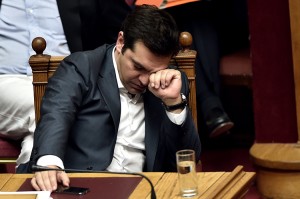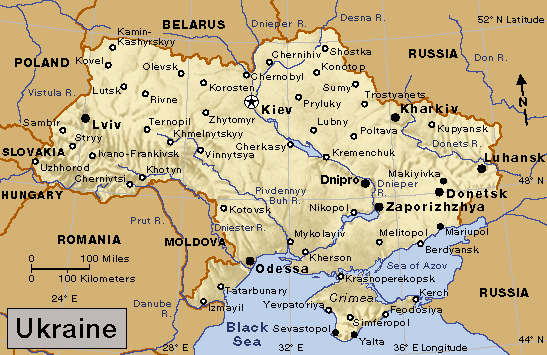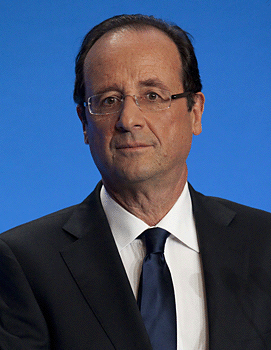Brexit: Adieu, EU
Friday, January 31st, 2020January 31, 2020
Tonight, January 31, at midnight Central European Time (6 p.m. Eastern Standard Time in the United States), the United Kingdom will officially withdraw from the European Union (EU). The withdrawal has been termed Brexit, a combination of the words British and exit. British voters approved Brexit in a controversial referendum (public vote) in June 2016. Brexit was originally scheduled for 2019, but difficult negotiations delayed the withdrawal. The United Kingdom was a founding member of the EU in 1993.

A taxi driver waves a Union Jack flag in London after the United Kingdom voted to leave the European Union on June 23, 2016. Credit: © Stefan Rousseau, PA Wire/AP Photo
Negotiations on the United Kingdom’s post-Brexit relationship with the EU will begin in March 2020, and during this transition period—set to expire at the end of the year—the United Kingdom will remain in the EU single market and customs union. Thus, many of the changes implemented by Brexit will not be immediately felt by British and European citizens.

The British Prime Minister Boris Johnson is seen here campaigning for Brexit as a member of Parliament in 2016. Credit: © Christopher Furlong, Getty Images
The EU is an economic and political partnership among European countries. It grew out of economic cooperation that began among Western European countries in the early 1950′s. These countries eventually cooperated in economic affairs as members of the European Community (EC). The United Kingdom joined the EC in 1973, becoming part of the EU with its creation in 1993. The EU member countries formed a single economic market without internal barriers to trade, labor, and investment.
The United Kingdom has benefited in many ways from EU membership, including in its economy and employment, access to food and medical supplies, global influence, and international security and transportation. Membership also enabled British citizens to live and work freely in other EU member countries, without the need for foreign work visas or other restrictions.
Some U.K. citizens, however, resisted the country’s membership in the European Union from the beginning. Some of them felt that membership weakened British sovereignty (self-rule) and the so-called “nation-state”—the country’s common descent, language, history, and culture. Other people rejected the United Kingdom’s economic responsibilities within the union, which were greater than those of many other member nations. Still others objected to the increased numbers of people from other EU countries coming to live and work in the United Kingdom.
The Brexit referendum narrowly passed—51.9 percent in favor to 48.1 percent opposed—in June 2016. In March 2017, the British government invoked Article 50 of the Treaty on European Union—the procedure for a member state to withdraw from the union—and set the withdrawal date for March 29, 2019. Negotiations for the withdrawal began in June 2017, and an agreement between British and EU leaders was finally reached in November 2018. The agreement failed to gain support in the British Parliament, however, and the EU granted an extension of Brexit negotiations beyond the March 2019 deadline. The extension delayed the Brexit deadline to Oct. 31, 2019, but another extension pushed that date to Jan. 31, 2020. Despite numerous Brexit-related concerns, British voters backed the Conservative Party and its leader, Prime Minister Boris Johnson—a staunch Brexit supporter—in December 2019 elections, sealing the nation’s fate to cut ties with the European Union.












